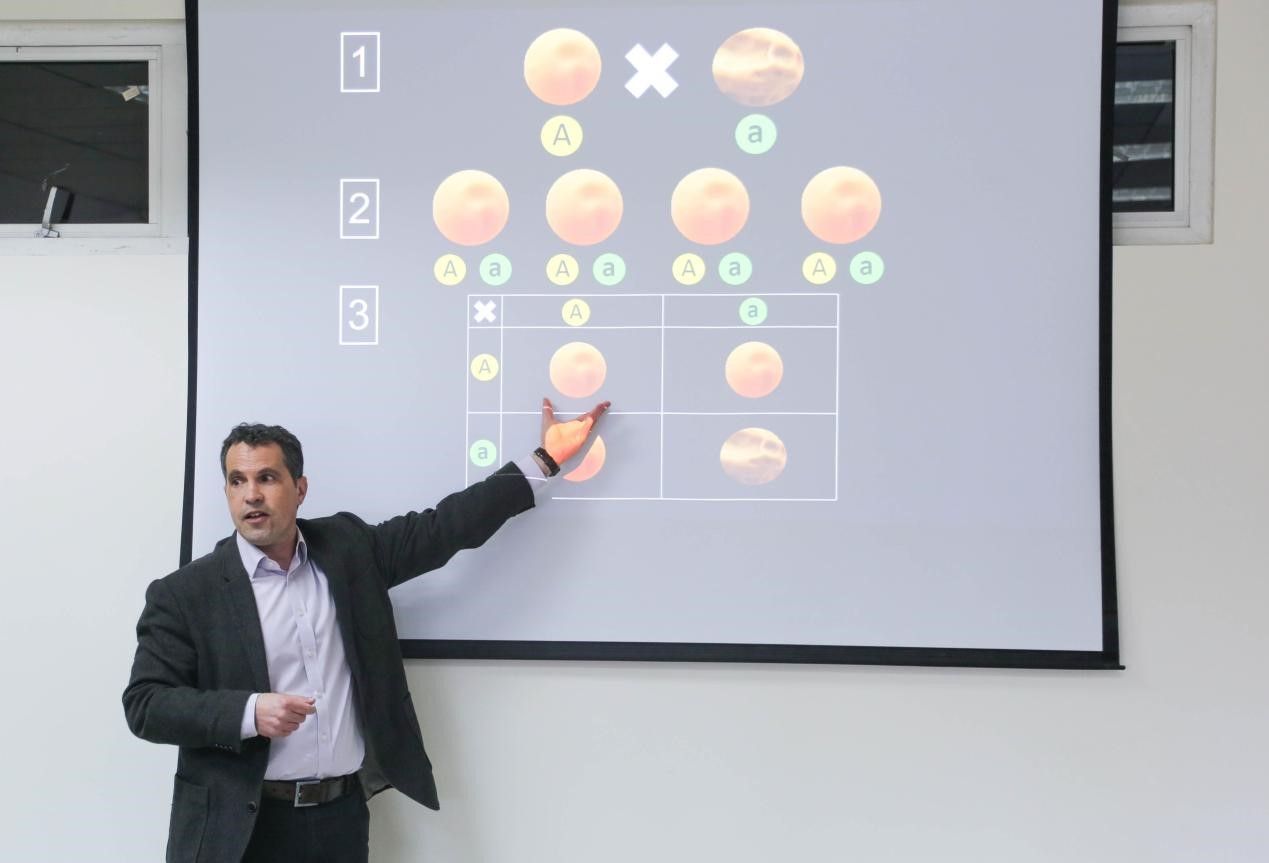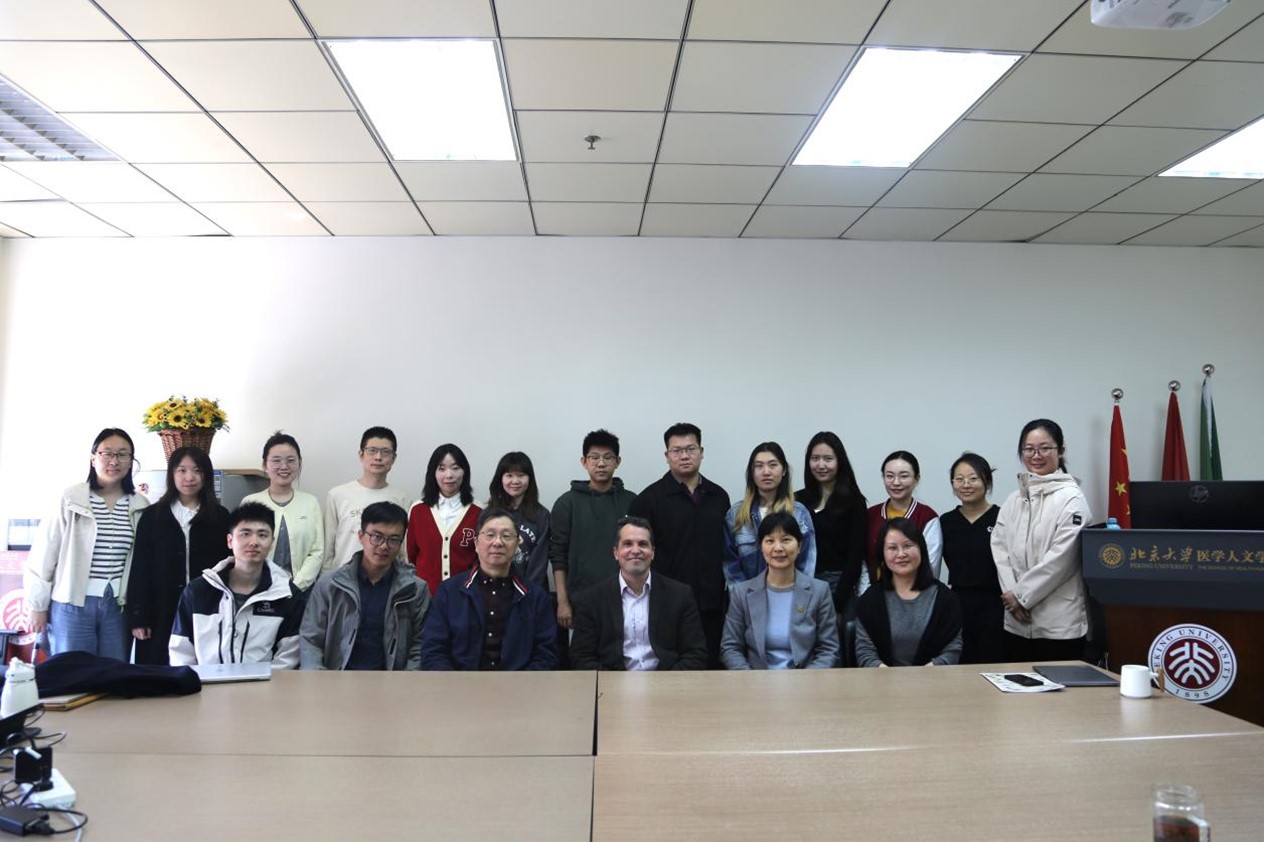The 153rd Peking University Medical Humanities Forum:Gregory Radick :Disputed Inheritance
On the morning of April 14, 2025, the 153rd Peking University Medical Humanities Forum was held in Room 620 of the Yifu Building at the Health Science Center. Professor Gregory Radick from the School of Philosophy, Religion and History of Science at the University of Leeds, delivered an insightful presentation titled Disputed Inheritance: The Battle over Mendel and the Future of Biology. The title is drawn from Professor Radick’s 2023 book published by the University of Chicago Press,and a Chinese translation is currently underway.The lecture was chaired by Associate Professor Chen Qi (School of Health Humanities, Peking University), and Professor Zhang Daqing (School of Health Humanities, Peking University) and Associate Professor Su Jingjing (School of Health Humanities, Peking University) were invited as commentators.Attendees included faculty and students from various departments of Peking University, the Institute for the History of Natural Sciences at the Chinese Academy of Sciences, and the University of Leeds.

Firstly, Professor Gregory Radick initiated his discussion by referencing the ancient Chinese classic Records of the Grand Historian and its iconic phrase, "King, Earl, General and Prime Minister, there is no gene for it.(Wang Hou Jiang Xian Ning You Zhong Hu.)" to explore the discovery of genes and related scientific issues. He revisited the core principles of Mendelian genetics, elucidating the inheritance patterns of dominant and recessive traits through pea experiments and introducing the concept of "genes." For decades, textbooks have often simplified trait inheritance as "genetic determinism," neglecting environmental influences, developmental stochasticity, and gene-gene interactions. While this reductionist logic aligns with Mendel’s experimental framework, Radick emphasized that real-world complex traits resist such simplistic explanations.
Then he delved into the controversies over genetics textbooks, particularly the intellectual divergence between William Bateson and W.F.R. Weldon. Bateson championed Mendelian principles, asserting that genes were central to trait determination and advancing eugenics, while Weldon, through his water flea experiments, emphasized the complexity of heredity, advocating for the study of actual variation, ancestral history, and environmental interactions. However, due to Weldon’s untimely death in 1906, his theories failed to gain mainstream traction. Mendelian frameworks subsequently dominated educational materials, further entrenching genetic determinism in scientific discourse.
Gregory Radick argued that traditional genetics pedagogy, centering on Mendel’s hereditary discoveries, predisposes students to genetic determinism, exacerbating racist ideologies and social stratification. To address this, the University of Leeds trialed Weldon’s multifactorial model in teaching, emphasizing gene-environment interactions. Results revealed a marked decline in endorsement of genetic determinism among the experimental group, with no change observed in the control group. Consequently, Radick proposed introducing genetics through a multifactorial lens (genes, environment, developmental stochasticity) rather than beginning with simplified Mendelian frameworks.
In conclusion, Gregory Radick emphasized that the significance of the history of science lies in uncovering unchosen scientific paths—such as Weldon’s theories—that reveal alternative possibilities for disciplinary development. Historical education, he argued, can broaden the horizons of contemporary scientific inquiry and prevent intellectual rigidity. By revisiting the history of genetics, Radick critiqued the reductive tendency of textbooks to propagate genetic determinism and called for integrating environmental and multifactorial complexity into science education. Case studies like the Bateson-Weldon debates demonstrated how the organization of scientific knowledge profoundly shapes societal perceptions. Moving forward, he urged the construction of a more inclusive, multidimensional genetic narrative through educational reform and historical reflection.

The presentation sparked vigorous discussions among attendees. Professors Zhang Daqing and Su Jingjing along with faculty and students, explored topics such as the Royal Society's role in genetic controversies and analogous academic disputes from other historical periods. Following group photography and extended discussions, the event concluded successfully.
Zhang Yimeng ,Chen Qi
School of Health Humanities


